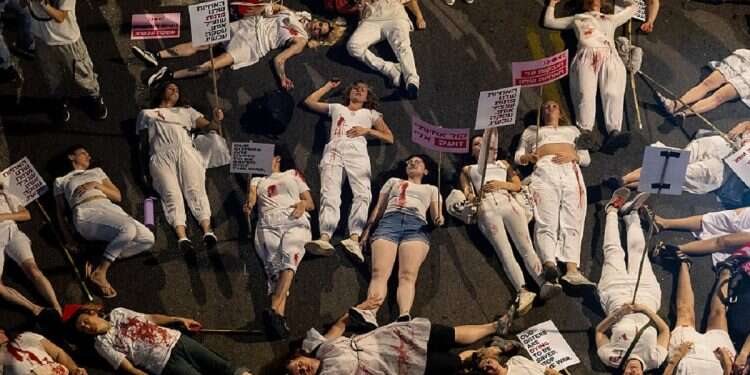Amidst simmering disagreements within Israel's political leadership, a pressing debate rages – what should be the nation's paramount priority? Securing a deal to free hostages held captive, or launching a major military offensive in Rafah?
A poll done by the Israel Democracy Institute in April 2024 has laid bare deep fractures within Israeli society on this contentious issue. Among the Jewish public sampled, a 56% majority aligned with the stance that negotiating the hostages' release should take precedence. However, a substantial 37% voiced the opposing view – that a military operation in Rafah should be the topmost concern. Starkly contrasting this rift, an overwhelming 88.5% majority within the Arab sample favored prioritizing a hostage release deal.
The divide cut sharply across political affiliations within the Jewish camp. An emphatic 92.5% of left-wing respondents and 78% of centrists considered a hostage deal the prime objective. Conversely, 55% of the right-wing advocated for a Rafah military campaign as the overriding priority. Yet even within the right-wing bloc, nuances surfaced. Among last election's Likud voters, opinions split – 48.5% backed a Rafah offensive while 44% preferred hostage negotiations.
Gender emerged as another faultline, with 63.5% of Jewish women ranking a hostage release deal as the paramount concern. Men, however, remained divided albeit with a slim 49% to 44% plurality preferring negotiations over military strikes.
Age too emerged as a factor shaping perspectives. The youngest cohort, aged 18-34, remained divided – 48.5% preferring negotiations, 45.5% an offensive. Older segments, however, gravitated towards a hostage deal with 53% among 35-54-year-olds and 67% of the 55+ demographic making it their chief priority.
Factors like political affiliation, ethnicity, age, and gender shape the divergent viewpoints on Israel's top priorities. As this profound divergence within Israel's public simmers alongside political paralysis, the hostage crisis and Gaza violence preserve long-festering societal rifts over the pivotal strategies of negotiation versus military force. The schism highlights long-standing fissures straining national unity during turbulent times.




